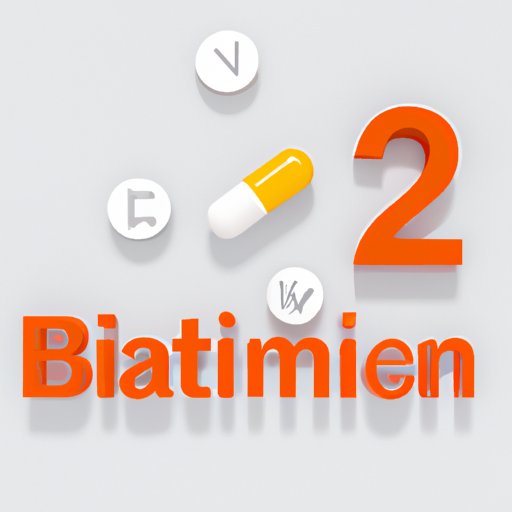
Understanding the Causes and Symptoms of Vitamin B12 Deficiency
Vitamin B12 is an essential nutrient required for the proper functioning of the brain, nervous system, and red blood cell formation. It plays an essential role in DNA synthesis and the normal functioning of the immune system. Low levels of vitamin B12 can lead to a range of health complications.
There are various reasons behind low vitamin B12 levels. Poor diet, pernicious anemia, and gastrointestinal disorders are common causes of vitamin B12 deficiency. Low levels of B12 can lead to anemia, fatigue, weakness, and numbness or tingling sensations in the hands and feet. Furthermore, long-term vitamin B12 deficiency can lead to irreversible damage to the nervous system and eventually cause dementia.
What Vegans Need to Know about Vitamin B12 Deficiency
Vitamin B12 is found naturally in animal products, which is why a vegan diet increases the risk of low vitamin B12 levels. Vegans must supplement their diets with fortified B12 foods or supplements to prevent deficiency. Fortified cereals, plant-based milks, and vegan burgers are some vegan-friendly options fortified with vitamin B12. Additionally, vegan-safe vitamin B12 supplements are available in the market. Regular blood tests can help monitor vitamin B12 levels and prevent potential health complications caused by vitamin B12 deficiency.
How Medications Can Cause Vitamin B12 Deficiency
Some medications can interfere with the body’s ability to absorb vitamin B12 from food sources. These include proton pump inhibitors, metformin, and H2 blockers. These medications can decrease the production of stomach acid, which is required for the proper absorption of vitamin B12. Individuals taking these medications are advised to supplement their diets with vitamin B12 supplements or consume foods fortified with vitamin B12 to prevent deficiency.
The Link Between Age and Vitamin B12 Deficiency
The aging process affects the body’s ability to absorb and utilize vitamin B12. The stomach lining becomes thinner with age, decreasing the production of stomach acid, which means less vitamin B12 is absorbed from food sources. The increasing age of the individuals leads to long-term vitamin B12 deficiency, increasing the risk of anemia, neurological symptoms, and ultimately dementia.
Older adults should be aware of their B12 needs and supplement their diets with foods and supplements rich in vitamin B12. A regular blood test can help monitor B12 levels and prevent deficiency-related complications.
Addressing Vitamin B12 Deficiencies in Pregnancy
Vitamin B12 is essential during pregnancy as it plays a crucial role in the development of the fetal nervous system. A deficiency in B12 during pregnancy can lead to an increased risk of neural tube defects, developmental disorders, and cognitive impairments in infants.
Pregnant women should consult with their doctors about the right vitamin B12 supplement dosage and incorporate foods rich in B12, such as dairy products, meat, fish, and eggs, in their diets. Regular B12 monitoring tests can ensure that their vitamin B12 levels remain healthy throughout the pregnancy.
Conclusion
Vitamin B12 is a vital nutrient required for the proper functioning and development of the body. Low levels of vitamin B12 can lead to severe health complications, which is why one should take steps to prevent vitamin B12 deficiency. This article has covered several causes of vitamin B12 deficiency, including its effects on vegans, medication, age, and potential risks during pregnancy. It is important to consult with a healthcare provider and take appropriate measures to maintain optimal levels and ensure one’s well-being.





